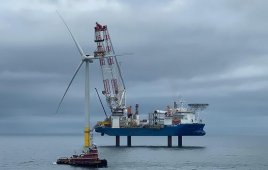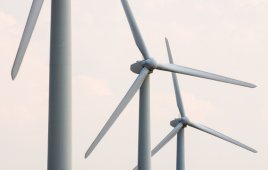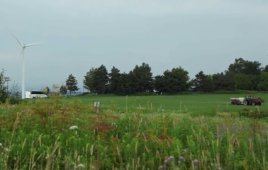These issues encompass much of what happens in the renewable-energy industry. Due to an increased value placed on wind, recent legal issues have emerged regarding wind rights. One legal expert says that, like many new developments, technology often progresses faster than the law. Some believe officials need to adopt legal changes to adapt to new renewable energy technology.
 Policymakers searching for fair and efficient ways to promote renewable-energy developments are likely to be influenced by natural resource and energy law. However, existing laws will be unable to effectively address some issues relating to renewable energy. Like sub-surface oil and gas, wind and solar resources have characteristics that require specially tailored legal rules to effectively govern how these resources will be shared among neighbors. Competing wind rights provide an example.
Policymakers searching for fair and efficient ways to promote renewable-energy developments are likely to be influenced by natural resource and energy law. However, existing laws will be unable to effectively address some issues relating to renewable energy. Like sub-surface oil and gas, wind and solar resources have characteristics that require specially tailored legal rules to effectively govern how these resources will be shared among neighbors. Competing wind rights provide an example.
Legal issues regarding wind rights appear when evaluating who has the right to freely capture wind. For instance, modern wind turbines create wind disturbances or wakes for hundreds of yards downwind. If an upwind property owner wishes to install a wind turbine on his property, the wind reaching his downwind neighbor might be affected. When the downwind owner then wishes to install a turbine on her property, she must choose to locate it somewhere that won’t be affected by the upwind turbine wake. This location might not yield as much wind energy, thus causing the downwind owner to lose out on potential earnings.
Without clear legal rules segregating one property owner’s right to capture wind from the competing rights of neighbors, conflicts among neighbors will inevitably arise possibly resulting in litigation and underdevelopment of areas well-suited for wind energy.
One suggested legal solution to the problem of competing wind rights, is a widely used legal model for analyzing rules governing the allocation of a scarce resource between competing parties. The proposal is that in rural areas zoned for commercial wind energy development, landowners should be free to place wind turbines anywhere on their property (within ordinary safety restrictions) without being liable to neighbors for downwind wake effects.
However, to encourage the most efficient use of wind resources in such areas, laws could require that downwind neighbors receive notice of a landowner’s plans to install a wind turbine and a legal right to pay the upwind owner to keep him from installing the turbine (at the value of the turbine site to the upwind owner).
Filed Under: Policy




